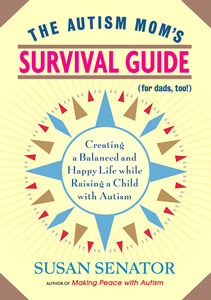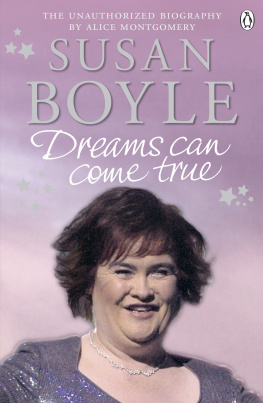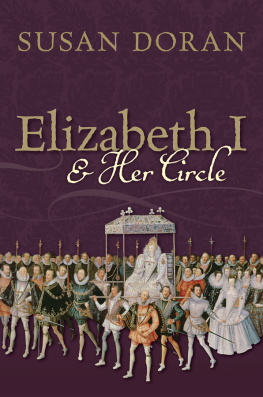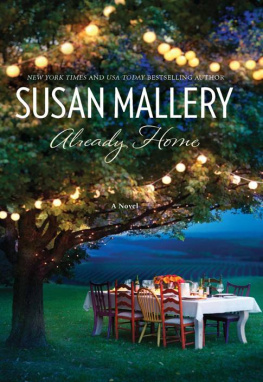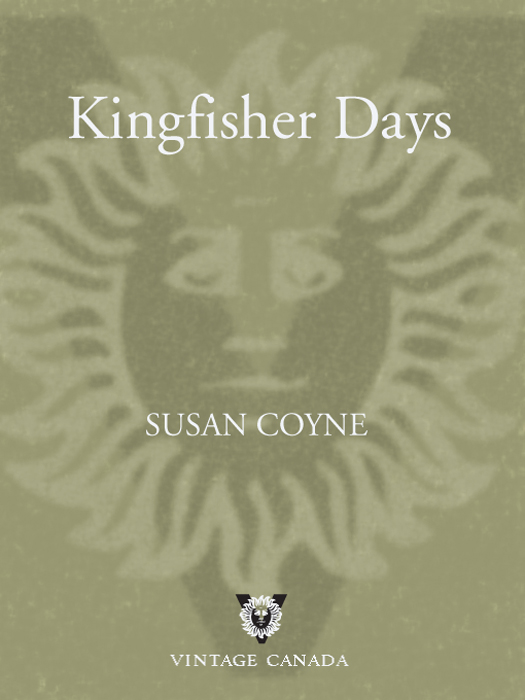
PRAISE FOR KINGFISHER DAYS
Some books we read to be entertained, others to learn something new. But once in a while, a book comes along that hardly seems like a book at all. Instead, it is like a shiny pebble among the gravel, or a delicate blossom among the rough weeds. Kingfisher Days is like that, not so much a collection of pages bound together with a spine, but a magical little world that beckons the reader to step inside and drift along in a dream. Susan Coynes touching recollection of a single summer in her childhood is pure enchantment. The Toronto Sun
[A] beautiful childhood memoir by Toronto actress Susan Coyne. Whimsical and lyrical. This is the story of the fairy world, of a childs innocence, of a special friendship and the interconnectedness of life. Winnipeg Free Press
Coynes recreation of a young childs abruptly shifting world view is spot-on; a perch from which small events loom large and faith is very much a live, vital force. Well be reading Kingfisher Days aloud with our own little people. Thank you, Susan Coyne. And thank you, Mr. Moir. The Toronto Star

Susan Coyne is an actor who has played leading roles at theatres across Canada and overseas. She is a founding member of Torontos Soulpepper Theatre, for whom she co-adapted Anton Chekhovs Platonov (with Lszl Marton). The theatrical version of Kingfisher Days was produced by the Tarragon Theatre, where she is a playwright-in-residence. She is also developing and writing a new TV series about life in the theatre. She and her husband, actor and director Albert Schultz, live in Toronto with their two children.
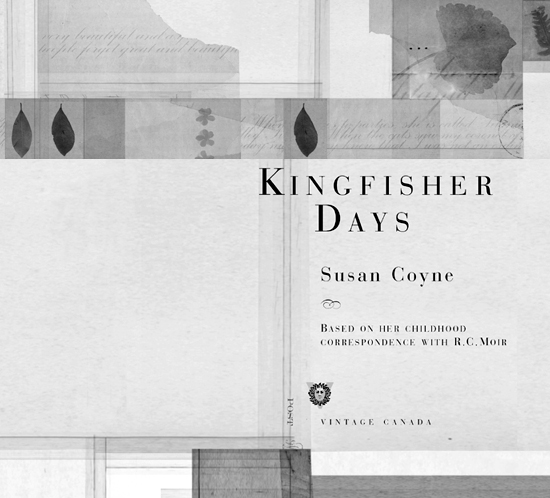

It is requird you do awake your faith
The Winters Tale
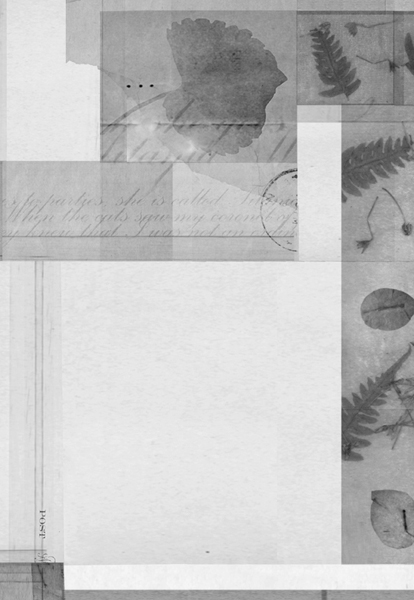
To see a World in a Grain of Sand
And a Heaven in a Wild Flower,
Hold Infinity in the palm of your hand
And Eternity in an hour.
When I first read those lines, they struck me with the force of something I had always known, but somehow forgotten. They are by William Blake, from an unfinished poem called Auguries of Innocence, about the interconnectedness of all things, and especially the profound connection between faith and truth. To me, they perfectly describe the way a small child sees the world, before she learns to hurry up, settle down, and pay attention to what the grown-ups think is important.

This is the story of a remarkable friendship, which began when I was five years old, and has nourished me all my life.
I have a photograph taken that summer on the platform in Torontos Union Station. My mother, dressed in a tailored suit of robins egg blue, is holding my little brother Andrew by the hand. My nine-year-old sister Nancy is in braids and a skirt and blouse. I am wearing a smocked cotton dress and ankle socks, holding my doll, Lazy Mary, by one arm. on the back of the photograph my mother has scrawled the date: June 1963.
We are on our way once again from Toronto to Kenora, on Lake of the Woods. our train is called the Trans-Canada Limited, or The Fastest Train Across the Continent.
Once inside the car, we pressed our faces to the window to watch as the train pulled out of the station and began to pick up speed. The little houses became a blur, and then there were green fields all around.
We played beneath the dome of the Observation Car, as the train plunged through corridors of pink granite, over cataracts and sunlit rivers, deeper and deeper into the boreal forest. Sometimes we stood at the back of the train, watching the tracks spool away from us into the far distance, hypnotized by the rhythm of the present becoming the pastNow Now Now
We ate supper in the Dining Car. The table was covered with heavy white linen and there were little silver dishes of olives and celery and cold butter curled into barrel shapes. On the way out, if no one was looking, Nancy would pick up the big silver bowl of multicoloured mints and empty it into her skirt. Then we would make our way back to our room, my sister clutching her skirt to her waist as she lurched down the narrow aisle.
Next morning, in our bunks, we woke to see Lake Superior speeding by.
And then, after another day and another sleep, we arrived at the little station in Kenora. With shaky legs we climbed down the stairs onto the platform. And there was my father, beside the family station wagon with my two older brothers, Sandy and Patrick, and our poodle, Celeste.
Kenora, ne Rat Portage, was at that time a rugged little pulp and paper town, with a Mill that blew a whistle every day at noon, a little brick Courthouse and a Post Office with a clock tower where we got our mail.
We left the station wagon in the parking lot at Camerons Point. Dragging our suitcases, we lumbered down the old cracked steps, beneath a canopy of leaves. And then, with a shock of pure joy, we saw it: The Lakeunbearably bright, slapping against the dock in ecstatic welcome.
The boat ride seemed to take forever. When we arrived, we had to stay seated while my father cut the engines and manoeuvred the boat into the echoing boathouse. And then the bags and the dog and the cat in his cage had to be lifted onto the dock. Only then were the children allowed to scramble out and run screaming up the hill to the house.
The terraced steps that wound up the hill were covered with pine cones and sticks that crunched beneath our feet. At the top of the hill was one last hurdlethe ten green steps up to the porch. The screen door slammed and the little glass wind chimes stirred in the breeze. Inside the house, the long silence of the winter months hung in the air.
And now began the ritual of arrival. The doors to the living room were swung wide, while my father stood by with a broom in case a bird came swooping down. The sheets in the linen closet were hung outside to air. In the kitchen, the cupboards were flung open and we stood still a long moment, fingers pressed to lips, listening for mice. Then the tins of sugar and flour were taken up and tapped before opening, and the shelves wiped down with hot soapy water. Upstairs, my mother found a little nest of cotton balls in the medicine cabinet. And then, having cleaned and swept and scoured and thinking we had the place back to ourselves, the screams of Paulina, our nanny, brought us all running to see the dead snake curled up in the waterless toilet.
Otherwise, everything was just as we had left it: the comic book lying open on the couch, last years swimming chart curling from the wall, a pair of dusty yellow shorts hiding under the bed. And I would always stop to look out the bedroom window at the lake, imagining it in winter, blanketed in snow.

My family was a large one. My mother had been widowed at a young age with three children. A few years later she met my fatherthen 47and they had two more.



